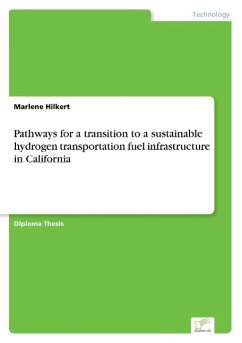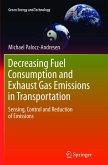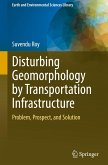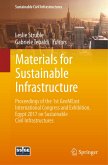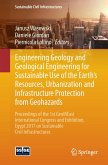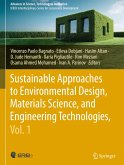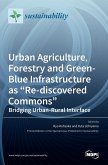Diploma Thesis from the year 2003 in the subject Energy Sciences, grade: 1,0, Karlsruhe Institute of Technology (KIT) (Wirtschaftsingenieurwesen), language: English, abstract: Inhaltsangabe:Abstract:
As society enters the 21st century, there is a growing awareness of the burdens being placed on the planet, as its ability to keep up with the demands of modern society are strained. One of the major contributors to this burden happens to be a main resource required for sustained development. Energy has always been, and will always be a necessary resource for existence. Since the industrial revolution, fossil fuels such as coal and oil have been the main-stay fuel to accommodate society's appetite. As the demand for this resource increases, the climatic and socio-economic costs of this fuel become more acute, and it is well documented that the supply of this fuel is not endless. One of the major consumers of this fuel, as a society, is the transportation sector. The processes in place which take it from the ground, to its combustion as a fuel, are some of the main culprits which adversely affect the planet. This thesis explores the issues associated with the introduction of another energy resource Hydrogen as a replacement fuel for the transportation industry.
It is argued that for the transportation sector, Hydrogen offers the most promising alternative as a fuel. Making Hydrogen readily available and affordable through the retail infrastructure is of paramount importance, if its widespread use is to be achieved. The logistics of this are explored, and it is believed that the introduction of small Hydrogen fuelers at existing retail outlets, is the preferred method to instantiate the transition in the short to medium term. Those fueling stations can utilize grid electricity to produce Hydrogen by the means of water electrolysis, or take advantage of the existing Natural Gas distribution infrastructure to produce Hydrogen via steam reformation. This thesis examines the Well-to-Wheels impacts and economic feasibility of those options and compares them to existing vehicle and fuel technologies.
The state of California was chosen as a target market due to its high automobile density, the resulting pollution issues, and its clear mandate on promoting alternative energy sources.
Inhaltsverzeichnis:Table of Contents:
I.Introduction2
1.Summary of the work2
2.Environmental, economic, and political challenges associated with the use of fossil fuels, especially oil3
2.1Environmental and Social Problems with Fossil Fuels3
2.1.1Environmental pollution - Oil spills and discharges3
2.1.2Environmental pollution - Local Emissions5
2.1.3Environmental pollution - Global Climate Change7
2.2Exploitation of non-renewable resources12
2.3Economic dependence on finite resources15
3.Facts about California18
II.Technical background22
4.Fuel Options for Transportation22
5.Alternative means of transportation2
16 6.Hydrogen and Transportation36
6.1Physical and Chemical Properties of Hydrogen36
6.2Use of hydrogen40
6.2.1Contemporary use of hydrogen40
6.2.2Fuel Cells42
6.2.3Safety50
6.3Manufacture of Hydrogen53
6.5Transportation of Hydrogen72
6.6Retail Infrastructure for Hydrogen73
6.7The Hydrogen Economy74
6.8Selected Hydrogen Programs and Cooperations79
7.Electrolysis of Water81
7.2Opportunities and Problems of Hydrogen Production with Electrolysis83
7.3Electrolyzer Appliances85
7.4Feedstocks for Electricity Generation88
III.Analysis of Different Hydrogen Production Pathways93
8.Criteria for the Analysis94
9.Different Fuel and Vehicle Scenarios96
10.The GREET 1.6 Model101
11.GREET Input Assumptions102
12.GREET Results110
12.1Energy Consumption111
12.2CO2 and GHG Emissions116
13.Hydrogen Produc...
As society enters the 21st century, there is a growing awareness of the burdens being placed on the planet, as its ability to keep up with the demands of modern society are strained. One of the major contributors to this burden happens to be a main resource required for sustained development. Energy has always been, and will always be a necessary resource for existence. Since the industrial revolution, fossil fuels such as coal and oil have been the main-stay fuel to accommodate society's appetite. As the demand for this resource increases, the climatic and socio-economic costs of this fuel become more acute, and it is well documented that the supply of this fuel is not endless. One of the major consumers of this fuel, as a society, is the transportation sector. The processes in place which take it from the ground, to its combustion as a fuel, are some of the main culprits which adversely affect the planet. This thesis explores the issues associated with the introduction of another energy resource Hydrogen as a replacement fuel for the transportation industry.
It is argued that for the transportation sector, Hydrogen offers the most promising alternative as a fuel. Making Hydrogen readily available and affordable through the retail infrastructure is of paramount importance, if its widespread use is to be achieved. The logistics of this are explored, and it is believed that the introduction of small Hydrogen fuelers at existing retail outlets, is the preferred method to instantiate the transition in the short to medium term. Those fueling stations can utilize grid electricity to produce Hydrogen by the means of water electrolysis, or take advantage of the existing Natural Gas distribution infrastructure to produce Hydrogen via steam reformation. This thesis examines the Well-to-Wheels impacts and economic feasibility of those options and compares them to existing vehicle and fuel technologies.
The state of California was chosen as a target market due to its high automobile density, the resulting pollution issues, and its clear mandate on promoting alternative energy sources.
Inhaltsverzeichnis:Table of Contents:
I.Introduction2
1.Summary of the work2
2.Environmental, economic, and political challenges associated with the use of fossil fuels, especially oil3
2.1Environmental and Social Problems with Fossil Fuels3
2.1.1Environmental pollution - Oil spills and discharges3
2.1.2Environmental pollution - Local Emissions5
2.1.3Environmental pollution - Global Climate Change7
2.2Exploitation of non-renewable resources12
2.3Economic dependence on finite resources15
3.Facts about California18
II.Technical background22
4.Fuel Options for Transportation22
5.Alternative means of transportation2
16 6.Hydrogen and Transportation36
6.1Physical and Chemical Properties of Hydrogen36
6.2Use of hydrogen40
6.2.1Contemporary use of hydrogen40
6.2.2Fuel Cells42
6.2.3Safety50
6.3Manufacture of Hydrogen53
6.5Transportation of Hydrogen72
6.6Retail Infrastructure for Hydrogen73
6.7The Hydrogen Economy74
6.8Selected Hydrogen Programs and Cooperations79
7.Electrolysis of Water81
7.2Opportunities and Problems of Hydrogen Production with Electrolysis83
7.3Electrolyzer Appliances85
7.4Feedstocks for Electricity Generation88
III.Analysis of Different Hydrogen Production Pathways93
8.Criteria for the Analysis94
9.Different Fuel and Vehicle Scenarios96
10.The GREET 1.6 Model101
11.GREET Input Assumptions102
12.GREET Results110
12.1Energy Consumption111
12.2CO2 and GHG Emissions116
13.Hydrogen Produc...

